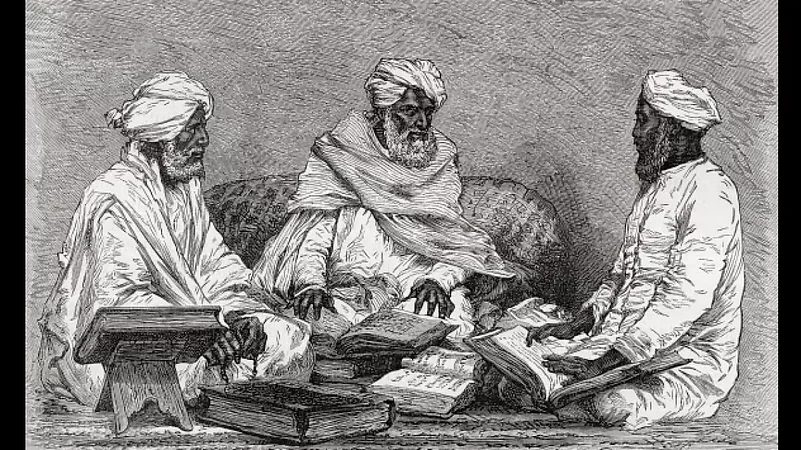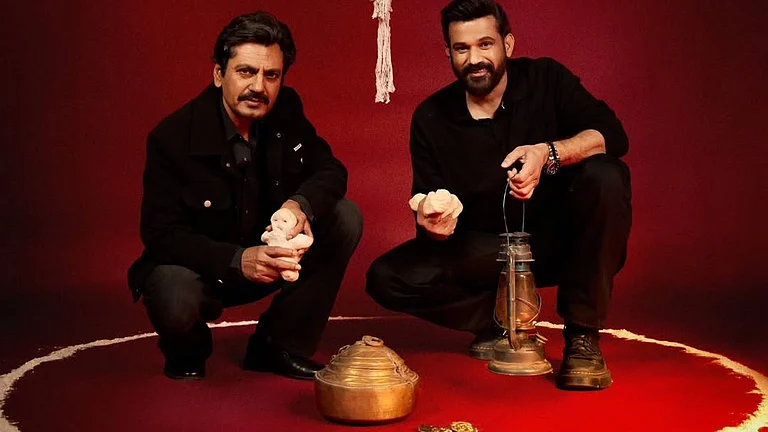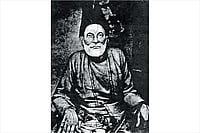“All persons are equally entitled to freedom of conscience and the right to freely profess, practise and propagate religion. Nothing in this Article shall affect the operation of any existing law or prevent the State from making any law regulating or restricting any economic, financial, political or other secular activity which may be associated with religious practice”—Article 25, of the Indian Constitution.
“Subject to public order, morality and health, every religious denomination or any section thereof shall have the right (a) to establish and maintain institutions for religious and charitable purposes; (b) to manage its own affairs in matters of religion”—Article 26.
The state of India has thus given religious groups, whether they are a minority or not, the freedom to practice their religion without any interference by the government. When India’s Constitution was being drafted in 1949, one of the major implications of these two Articles concerned the implementation of religious personal laws. However, an Article in the same document states that, “The State shall endeavor to secure the citizens a Uniform Civil Code throughout the territory of India.”
Thus the issue of personal law has become one of the most politically charged relating to Muslims ever since Independence, prompting issues of religious and culture to reappear in continum. Calls to abolish the Muslim law system, specifically, and at other times along with the other personal laws, will not achieve their objectives of integrating the Indian nation. Our view is that the issue of personal law is given a disproportionate amount of weight in terms of how it can bring the communities of India closer together. Here, we will focus at some of the main issues related to Muslim personal laws, starting with the historical development of the All-India Muslim Personal Board (AIMPLB), the body that has come for the protection of Muslim personal laws in India and what it means for Indian Muslims politically and socially.
The All-India Muslim Personal Law Board was formed in December 1972 at a convention of Muslim religious leaders in Mumbai. The principal aims, at its formation, were to challenge any attempt to reform the Muslim personal law by legislation or otherwise to promote social reform amongst Muslims. There are currently 151 official members, comprising mostly religious leaders that are nominated as representatives of various Muslim sects and regional areas in India.
At the conference, which was held at Jamia Islamia Darul Uloom, Shivarampally, another 150 activists, lawyers, and social scientists joined the religious core of the Board to discuss pertinent issues relating to the Muslim community in India. The Board also includes 15 women representatives. The unanimous election of the AIMPLB was in keeping its tradition since it was born in 1972 when Maulana Qari Tayyeb, rector of Darul Deoband, the largest Muslim seminary in the world, was elected. After his demise in 1983, Maulana Abul Hasan Ali Nadwi was elected unanimously and stayed in post until his death on December 25, 1999. Syed Abul Hasan Ali Nadwi was one of the widely read and most admired scholars in the world. He was to build bridges with other groups of Muslims, especially those who were not Sunni.
Coincidentally, over 80 per cent of the Board has traditionally been following the Hanafi school. The Board is represented by a large cross-section of Muslim groups in the executive committee. After Maulana Nadwi, Maulana Mujahidul Islam Qasmi, also a distinguished scholar was elected in April 2000. For all his knowledge and the respect he enjoyed, Maulana Qasmi could not offer effective leadership due to his failing health. Maulana Rabey Nadwi of Nadwatul Uloom succeeded him. One of the prominent Islamic scholars and thinkers Maulana Wali Rahmani has also played a key role in AIMPLB.
Thus the new AIMPLB chief took over when the Muslim community seems to be facing its most critical days since Independence. The community has yet to recover from the Gujarat pogroms amid overt and covert threats that “Gujarat” will be repeated all over the country to cripple the community economically, even amid the threat to convert them into second-class citizens.
The AIMPLB has tried to focus on countering overt and covert efforts to interfere with the Shariah or through parallel legislation. The first major test of the Board came in 1973, just a year after its inception, when a bill in Parliament was introduced for the enforcement of a civil procedure code. This bill contained a proposal for the grant of maintenance to the divorced woman by her former husband for life or till her remarriage. The Board members met Indira Gandhi, the then prime minister, and explained to her the differences and disparities between the provisions of this law and those of Shariah. The result was that the final reading of this bill was postponed and it was finally passed with some amendments. and an item was added to Section 127 of the Procedure.
Section 127 said that if the divorcing husband has paid the necessary Shariah dues and if the wife has pardoned these dues (mehr), the decree obtained under the old bill will be considered as null and void. In other words, Muslims were not necessarily under the jurisdiction of this law.
Yet, the true challenge for the AIMPLB came with the Shah Bano case in 1986. The Supreme Court of India had ordered payment of maintenance by the previous husband to his divorced wife for life or until her remarriage in the Muhammad Ahmad Khan vs. Shah Bano case. What actually infuriated Muslims in general not only the religious scholars on the Board, was the Court’s attempt to reinterpret Quran in an arbitrary manner and issue a recommendation to the government to enact the Uniform Civil Code. These calls for UCC by the judiciary figured again before an apex court bench comprising Chief Justice VN Khare, Justice SB Sinha, and Justice R Lakshmanan.
This came in a case striking down a provision (Section 118) of the Indian Succession Act, 1925, which discriminated against Christians by putting restrictions on their right to bequeath property for religious or charitable use. The AIMPLB took the Shah Bano issue head on and started a movement in the country. This was when the Board truly seemed to come into its own as premier organisation representing Muslims and Muslim issues in India.
A delegation of the Board chaired by Maulana Nadwi met the Prime Minister, Rajiv Gandhi, shortly after the decision in 1985. In 1986, the Board members met Rajiv Gandhi thrice again and tried to convince him of the weight of the stand taken by the Muslim scholars. Finally, the government passed the Women's Rights Act on May 6, 1986, which scrapped the court judgment and restored the Islamic law of maintenance.
Another, much more recent issue that the Board has taken on is the issue of the Babri Mosque site in Ayodhya. Since the demolition of the Babri Mosque in December, it also assumed responsibility for the issue and formed a committee to follow up this case in both political and legal fields. The Ayodhya issue was a major agenda item for the Board, and all the parties involved, including the BJP, the RSS, and the Indian government, have been primarily negotiating solely with the AIMPLB regarding this matter. Thus, the Board has become the main representative body of Muslims in India.
The Indian government, as well as other political parties, has come to look to the AIMPLB as a very important player in national politics. Thus this body represents the Muslims in social, political, and religious arenas rooted in the protection of the Muslim personal law. The personal law itself, as alluded to earlier, has come under criticism from groups and institutions, mostly non-Muslim. The idea to scrap all of the various personal laws that come to govern the different communities, including Hindu, Muslim, Christian, Sikh, Parsi and make a common civil code that will be enforced uniformly.
From a historical perspective, one has to realise that the main reason that the abolition of the Muslim personal law will not be easy, or even advance the cause of unity for Muslims in India, is that Muslims in India have enjoyed their personal laws long before the Indian Constitution was drafted in 1949.
The Muslim family laws relating to marriage, divorce, dower, maintenance, succession, inheritance, wills, legacies, adoption, and guardianship were in place since Islamic rule in South Asia, starting with the 13th century onwards. The laws were enacted in British rule as well, mostly in the first three decades of the 20th century. The concern with the application of Muslim personal law and constitutional safeguards thereto was evidenced again and again during the struggle for independence. Leaders of the Indian National Congress, including Gandhi and Nehru, gave repeated assurances to the Muslim community on the issue.
Muslims have been an integral part of the Indian society. In fact, from 1939 to 1946, the president of the Indian National Congress was Maulana Abul Kalam Azad, a Muslim religious scholar of the highest repute. Many other Muslim activists and social thinkers, such as Mohammad Ismail and Maulana Husain Ahmad Madani, were also major participants of the period. The vast majority of the Indian Muslim scholars rejected the idea of Pakistan for its being “too isolationist” and chose to support a united India, tolerant of its cultural and religious diversity. Thus, to begin making arguments regarding lack of the Indianness of Muslims and calling personal law as “separatist” are unfounded.
In terms of the idea of nationhood, it is very clear that the sentiment of a common nationality stems from an idea of a common culture. One must realise that this is being suggested in a country that has one, if not the, most heterogeneous linguistic, religious and cultural components. Furthermore, the concept of a nation will not have much to do with the way that personal laws of communities are legislated.
A better example could not be found than that of Bangladesh's breaking off from Pakistan in 1971. In that case, there were two south Asian Muslim nations, generally bound by the same personal laws, but they could not stick together. The personal law was never considered a binding force in that sense. This idea can be extended to modern Indian society as well. There are so many things outside the realm of personal law legislation that make Muslims distinct from their Hindu neighbours that might actually engender more “socio-cultural separatism” than the personal laws.
For example, with or without personal laws, Muslims will continue to have a separate place for their congregational prayers, which are completely distinct from the religious rites of others. They will hold fast collectively from dawn to dusk during the whole month of Ramadan. Their dead will continue to be buried rather than cremated. The more generalised cultural symbols such as the green colour and crescent, as opposed to saffron and trishul, will also continue to form a distinct identity for Muslims. It is possibly the lack of an objective and detailed sociological study of the problem in defining community's identity.
Discrimination as in polygamy and divorce among the communities keep the arguments open in context besides other problems affecting Indian women, not just Muslim women. The proponents are blaming the Muslim personal laws for such treatment, even though women, Hindu and Sikh women continue to suffer as well. In fact, according to the Report of the Committee on the Status of Women in India (1975), there is little difference in the percentages of polygamy among Indian Muslims and the Hindus. In fact, at one point, when some of that literature regarding polygamy came out the percentages were actually higher among Hindus than Muslims.
In dealing with personal laws, we should also consider that Indian couples can always choose to marry under the Special Marriages Act, passed in 1954. It enforces strict monogamy, leaves no room for extra-judicial divorce and effects equality between men and women in the right of divorce. Thus one who feels that the Muslim personal laws cannot provide adequate levels of protection or justice, can register their marriage under this law, thereby out of the application of their personal law relating to marriage and divorce.
A marriage that had originally taken place under the personal law can also be registered under the Special Marriages Act later on. This piece of legislation serves as alternative to those who do not agree with, or do not feel comfortable with, the religious-based laws. In terms of democracy, this option, which is left at the full discretion of the couple involved, allows a level of flexibility that is rarely brought to light among people.
It seems that the abolition of religious personal laws will not serve its purposes and goals, especially in terms of integration, rather cause more friction in contemporary Indian society on religious lines and this certainly would not be in the best interest of Indian society.
Prof. MJ Warsi is a well-known linguist, heading the Department of Linguistics at AMU Aligarh.

























